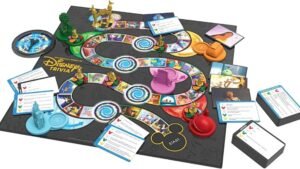Puzzles are not only fun but also an excellent way to improve problem-solving skills. Whether you’re working on a crossword, jigsaw puzzle, Sudoku, or logic puzzle, each type challenges your brain to think critically and creatively. Regularly solving puzzles helps enhance your ability to approach complex problems, break them down into manageable parts, and find solutions efficiently. In this post, we will explore how puzzles contribute to the development of problem-solving skills and why they should be a regular part of your routine.

1. Encourages Critical Thinking
Puzzles require critical thinking, which is a fundamental skill in problem-solving. When you face a challenging puzzle, your brain must analyze the information, consider possible solutions, and evaluate which approach is most effective. This mental process promotes deeper thinking, as you consider all the options before arriving at a conclusion.
For example, in a logic puzzle, you need to carefully evaluate each clue and use deductive reasoning to eliminate incorrect options. By regularly engaging in such activities, your brain becomes sharper at identifying patterns and thinking logically, both of which are essential components of effective problem-solving.
2. Teaches Persistence and Patience
Problem-solving often requires persistence, especially when the solution isn’t immediately obvious. Puzzles teach you to remain patient and stay committed, even when faced with frustration or difficulty. The process of working through a challenging puzzle can be rewarding as it requires determination to continue trying different strategies until you find the right answer.
This ability to persist through challenges is invaluable in real-life problem-solving. In work or personal situations, the problems you encounter may not always have immediate solutions. Puzzles help train your brain to keep going until you reach the right answer, instilling patience and resilience that can be applied in everyday life.
3. Enhances Decision-Making Skills
When solving puzzles, you constantly make decisions about which approach to take next. For example, when working on a Sudoku puzzle, you might need to decide which number fits in a given square based on the numbers around it. This decision-making process is crucial to solving the puzzle, and the more you practice, the better you become at making quick, logical decisions.
This skill translates directly into problem-solving. In both professional and personal settings, you are often required to make decisions based on limited information. Puzzles help you become more confident in your decision-making, teaching you to evaluate your options carefully and choose the best course of action.
4. Develops Strategic Thinking
Many puzzles require you to think strategically about how to approach them. For example, in a chess puzzle, you must plan several moves ahead to outsmart your opponent. Similarly, in a jigsaw puzzle, you need to visualize how pieces will fit together and anticipate where certain pieces might go.
Strategic thinking is a valuable skill that can be applied to real-world problem-solving. Whether you’re managing a project, negotiating a deal, or navigating a personal challenge, being able to think ahead and plan your steps is essential for achieving success. Regularly solving puzzles sharpens this ability, helping you develop a proactive mindset that can lead to better outcomes.
5. Fosters Creativity and Out-of-the-Box Thinking
While puzzles often have a logical approach, they also require creative thinking. Sometimes the solution to a puzzle is not immediately obvious and requires thinking outside the box. Whether you’re solving a riddle, trying to fit pieces together in a jigsaw puzzle, or working through a tricky crossword, you must sometimes come up with unconventional solutions.
This creativity is crucial for effective problem-solving. When faced with a problem in real life, especially in situations where traditional solutions may not work, you need to be able to think creatively and explore alternative approaches. Puzzles encourage this kind of creative thinking, helping you approach problems from different angles and find solutions that others might overlook.
Conclusion
Puzzles are a fun and effective way to improve problem-solving skills. By engaging with puzzles, you enhance your critical thinking, strategic thinking, and creativity while improving your attention to detail and logical reasoning. Solving puzzles also teaches persistence, patience, and decision-making, all of which are essential skills for solving problems in everyday life. So, whether you’re tackling a crossword, a Sudoku puzzle, or a jigsaw puzzle, you’re not just having fun—you’re also sharpening your brain and preparing yourself for real-world challenges.



